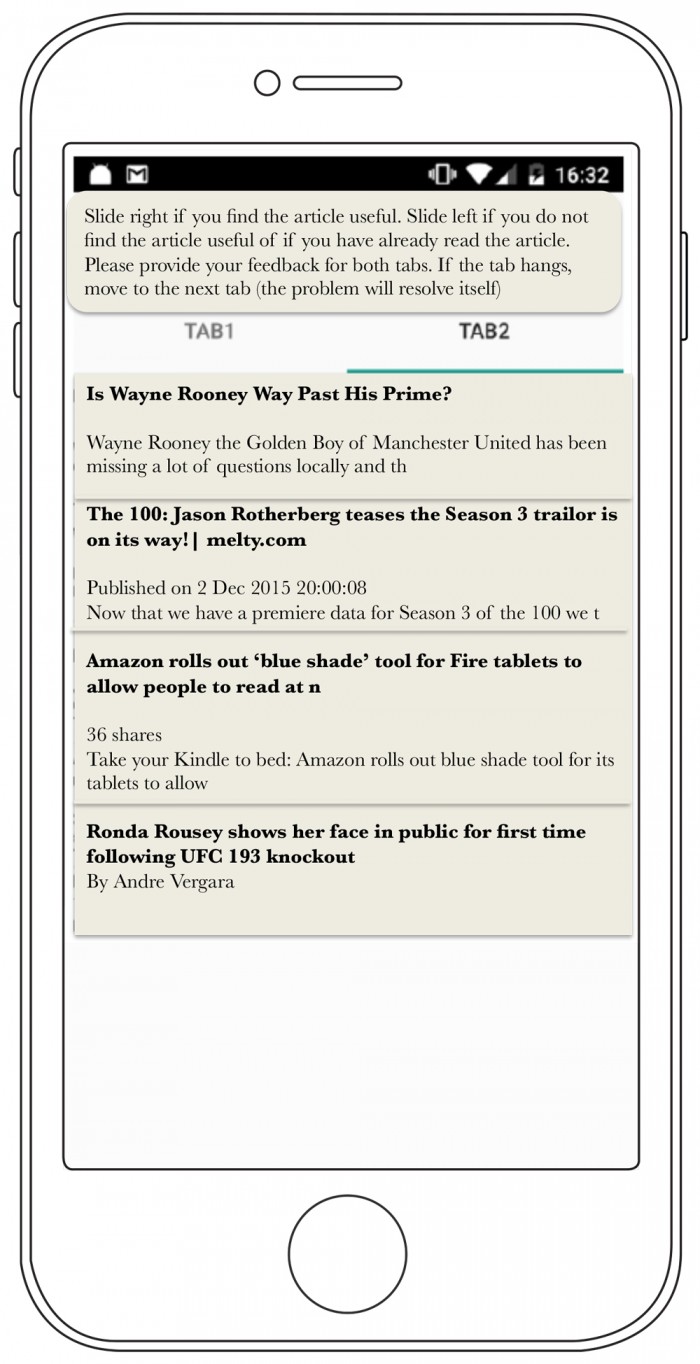This App Offers Personal Recommendations While Keeping Your Data Private
Personalization shapes your apps, services, and digital personal assistants, but to do it they tend to gather a lot of data about you. Researchers have come up with one potential alternative: an app that uses information about you to suggest news stories you may want to read, yet doesn’t send your personal information to any remote servers.
PrIA (for “Private Intelligent Assistant”) was created by researchers at Stony Brook University and IBM. For now, it requires both a laptop and an Android smartphone. The smartphone and laptop collect data from your Twitter, Facebook, and Chrome activity to create a user profile stored locally, not in the cloud. The laptop app downloads stories from Google News—without logging in to a Google account—and then, based on the profile stored only on your devices, it makes recommendations for which stories it thinks you’d want to look at. It sends those to an app on the smartphone.
“The important thing is, nobody but your phone and your laptop have this information,” says Aruna Balasubramanian, an assistant professor for computer science at Stony Brook. She’s the lead author of a paper on the project that will be presented in February at a mobile computing conference in Sonoma, California.
To see how well it worked at making recommendations, researchers conducted a small study. They had six people install the app on their laptops and smartphones and compared its suggestions to the ones they got if they signed into Google News for its recommendations. In a 10-day trial, the researchers found that their app was about 14 percent worse at suggesting news stories to readers than Google News. “This is a trade-off,” Balasubramanian acknowledges.
But the researchers think there is lots of room to improve their service by tinkering with their algorithms and by looking at a wider range of data about you—e-mail, for instance—while keeping it all on your handset.

Keep Reading
Most Popular
Large language models can do jaw-dropping things. But nobody knows exactly why.
And that's a problem. Figuring it out is one of the biggest scientific puzzles of our time and a crucial step towards controlling more powerful future models.
How scientists traced a mysterious covid case back to six toilets
When wastewater surveillance turns into a hunt for a single infected individual, the ethics get tricky.
The problem with plug-in hybrids? Their drivers.
Plug-in hybrids are often sold as a transition to EVs, but new data from Europe shows we’re still underestimating the emissions they produce.
Stay connected
Get the latest updates from
MIT Technology Review
Discover special offers, top stories, upcoming events, and more.